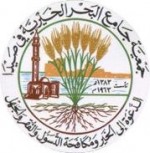
Survey estimates the brain drain costs the Arab world up to $2 billion a year
Brain drains have existed as long as there has been economic disparity between geographic areas. More recently, they have been among the primary negative effects of the lopsided globalization that has long favored the developed world at the expense of developing economies. The brain-drain phenomenon occurs when skilled, educated people migrate to pursue better living standards and quality of life, higher wages, more personal freedom, access to the latest cutting-edge technologies and solutions, and more stable sociopolitical and economic conditions.
This movement of talent, capabilities and experience has varying effects on the places left behind. For instance, medical professionals leaving in droves have decimated health care in developing countries already suffering from poor funding, loose regulations and nonexistent oversight. The departure of precious human capital compounds the problem, especially during virus outbreaks, natural disasters, events with mass casualties and other health crises.
In education, departing teachers, professors and even administrators do not make it easy for yet another extremely crucial but underfunded, poorly regulated and mostly neglected sector.
Unfortunately, the brain-drain problem is a tough challenge. According to the Pew Research Center, nearly 250 million people live outside their birth country. In nine countries, 20 percent or more of those born there now live elsewhere. Many, of course, are fleeing war and political instability.
In the Arab world, pervasive fears of a massive surge in departures by skilled professionals and young adults have turned into reality, particularly with the intensification of Arab Spring protests, escalations in the war on terror, religious extremism, poor economic conditions, severe income inequality and high unemployment, especially among the young.
The United Nations Development Project (UNDP) estimates the Arab world must create 51 million jobs to reverse its catastrophically high unemployment. Indeed, many protesters during the so called “Arab Spring” said the lack of jobs was their motivation.
Besides poor economies, violence and war, internal strife and instability have created tens of thousands of refugees, asylum seekers and other migrants. Such manufactured humanitarian crises worsen the brain drain, as it makes migrants of those not originally planning to leave. Migrants are quickly assimilated into new societies, immediately reaping the benefits of stability, relatively high incomes, wider access to health care and education, personal freedoms, welfare and even opportunities in fields largely unsupported or underfunded in their countries of origin, like the arts. The result is that about a quarter of young Arabs want to migrate elsewhere for better opportunities.
Written by Hafed Al-Ghwell
Image: CC
Publication date: October 06, 2018
Find civil society employment opportunities @ NGO Jobs
You can always give Free Donations daily through our unique Click-to-Help platform without cash, credit card or registration!





Copyright © 2024 The Olive Tree SAL, all rights reserved. Terms of Use | Privacy Policy